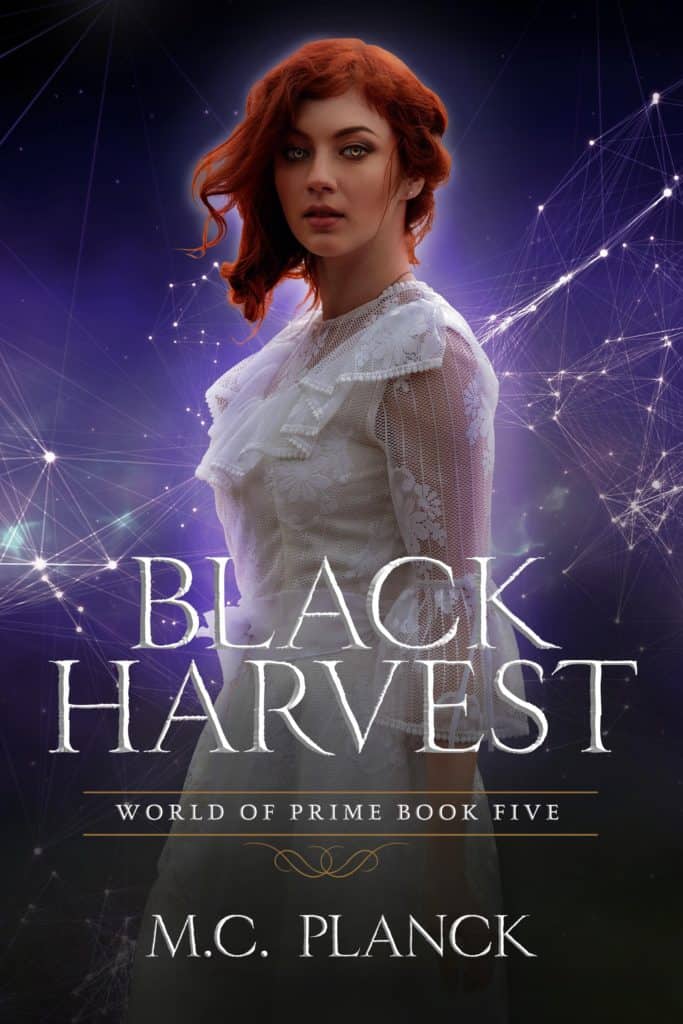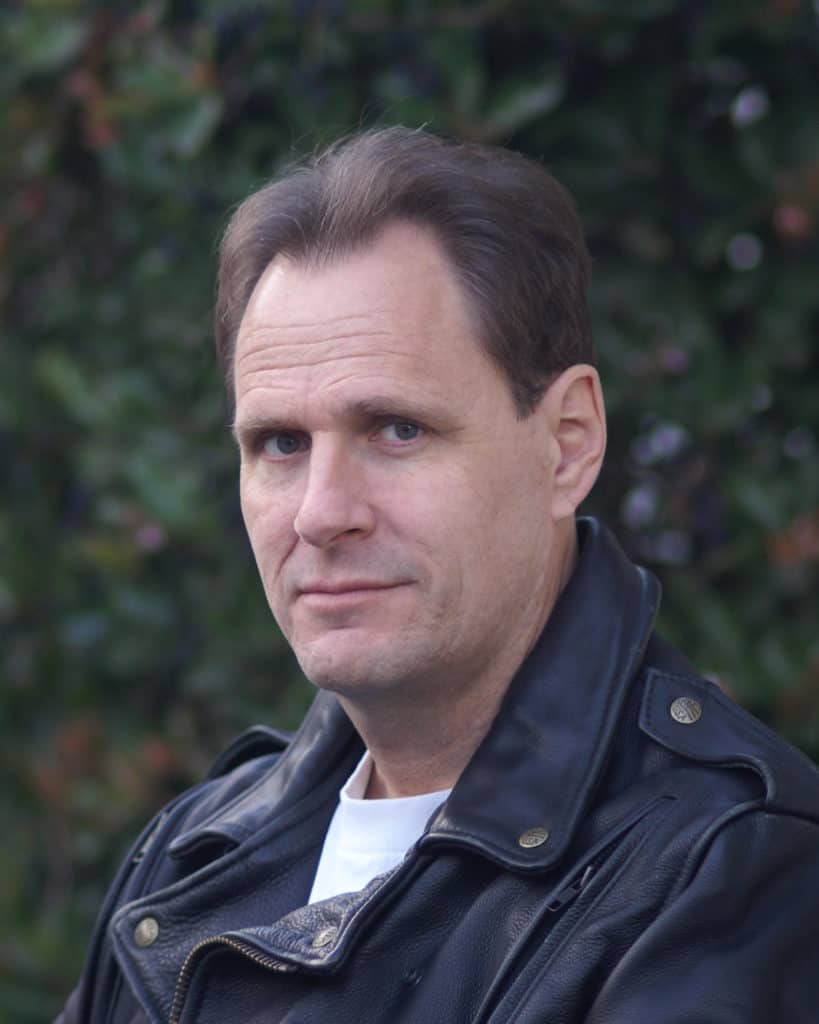Our next author interview is with M.C. Planck, the author of The Kassa Gambit. After a nearly-transient childhood, he hitchhiked across the country and ran out of money in Arizona. So he stayed there for thirty years, raising dogs, getting a degree in philosophy, and founding a scientific instrument company. Having read virtually everything by the old masters of SF&F, he decided he was ready to write. A decade later, with a little help from the Critters online critique group, he was actually ready. He was relieved to find that writing novels is easier than writing software, as a single punctuation error won’t cause your audience to explode and die. When he ran out of dogs, he moved to Australia to raise his daughter with kangaroos.
When did you first start writing fiction?
I took a short-story writing class from a community college about thirty years ago. I felt like I had read everything there was to read in SF&F and so I might as well start writing my own. Remember. this was before the e-book explosion; we didn’t have an infinity of stories to choose from back then!
What kind of books do you enjoy reading? Paper or eBook?
I much prefer paper. I don’t even own an e-reader; I have to use my laptop to read e-books. There is an iPad in my house but I only interact with it in the context of Minecraft.
What’s your favorite under-appreciated novel?
Hero, by Dave Duncan. It is a hard science-fiction story about a young hero who saves the world from alien invaders. Duncan takes that classic trope and inverts it so many times you can’t remember which way is up. Nothing is what it seems and yet everything is exactly as it has to be.
I would have listed Jack Vance but he has become somewhat more appreciated over the years. That said, anybody who plays D&D and has not yet read The Dying Earth absolutely has a treat in store for them.
Of your books, which is your personal favorite? Why?
Whichever one I am writing at the moment. Other than that, I would pick Verdict on Crimson Fields; it’s a real turning point for my protagonist, I get to describe cool new magic and a civil war, and it has one of the pieces of writing I am most proud of, where a supporting character is telling a story. Dave Duncan did this to incredible effect in The Hunter’s Haunt, which is a group of characters telling each other stories to pass the time in a snowed-in tavern – but of course all of the stories are related and drive the plot of the novel. I will always be jealous of the way he gave each character their own unique voice, and I like to think I achieved a little of that in Cardinal Faren’s tale.
You can make one LitRPG book a movie – which is it and why?
Like my books, Dave Duncan’s The Seventh Sword is only half-litRPG. Until the invention of this genre it would have just been called fantasy, but it has certain elements that are game-like. Both my Sword of the Bright Lady and Duncan’s The Seventh Sword are about an engineer transported to a fantasy world to do a quest for a god, and in both worlds the concept of character “level” is explicitly a real thing. They are also completely different as Duncan goes in a totally unexpected direction (for instance, his engineer is fighting against the people inventing guns).
So, as sort of a way to ease people into game-like fantasies, and because it’s a rollicking good story with a lot of surprises and sweet sword-fights, I’d pick The Seventh Sword.
Wait, can I pick a book that’s not LitRPG but spawned the entire RPG industry, which grew up to slavishly incorporate every element of the original book? Because that’s The Dying Earth, and it would totally knock your socks off as a Netflix mini-series.

Do you believe in writer’s block?
Absolutely! I almost never revise; I generally write at most two drafts, but for my most recent book I was completely stuck. I threw away three different starts before my wife mentioned a rose, and that, strange as it sounds, was the key I needed to unlock the entire plot.
Are you an outliner or panther?
Definitely a pantser. I know the beginning and the end, and then I just fill in the middle as it comes. Or usually, I know the end; one of my stories (Orion’s dog, still seeking a publisher) I started out thinking the good guys won and by the end of the book discovered, much to my surprise, that they didn’t!
What is your writing process like?
I read what I’ve written before and then I write what comes next. It all seems pretty organic to me. Probably the most interesting experience I’ve ever had was during Sword of the Bright Lady; early on I realized I needed a captain of the guard. And then Karl Treyingson just appeared, fully formed, and started telling me his history. I didn’t make him up; I just wrote down what he said. It felt like transcribing rather than creative writing.
How many hours a day do you write?
Anywhere from two to six. Though I went on a writing retreat with my wife once, and we both wrote for three days straight. I produced about a third of a novel then (I think it was Judgement at Verdant Court).
Share a photo of your workspace and tell us about it.
Eh, it’s just my laptop. I write wherever I can.
What are some of your favorite authors of all time?
Obviously, Dave Duncan and Jack Vance. Duncan should be more widely read – A Handful of Men, Hero, West of January, Reaver Road & The Hunter’s Haunt, The King’s Blades; and Vance should be more widely read by the general populace (writers have been reading him for decades) – The Dying Earth, Cugel’s Saga, Lyoness, The Demon Princes series.
Also, Ursula Le Guin (everything) and early William Gibson (not so much the later stuff. A story about secret pants? Really, Will? Really?)
If you could have any super power, what would it be?
Healing. Clerics are the single most under-rated class in all game systems. The ability to heal your buddies while they’re stabbing orcs is nice, but the ability to heal sick people is world-changing. The most powerful spell in D&D is a zeroth level cantrip, Cure Minor Wounds. It completely reorganizes human society on the same level as fertilizer or antibiotics did.
Where do you get your ideas?
I start with a premise: what if the world worked like _____? Then I write down the (to me) obvious ways everything would change. For example, Sword of the Bright Lady is me taking the rules of RPGs quite literally: high-level fighters really can jump out of an airplane and walk away from it, levels are real things, killing other creatures gives you direct power, and so on. What would your life be like if you went to a D&D game? I wrote SotBL to reflect the world literal RPG rules would create, not to be a fantasy world that RPGs are trying to emulate.
What are your thoughts on how VR will affect the future of humanity?
We will lose jet-liners. They’re already unjustifiable in terms of carbon emissions, and VR will make them less necessary. Going to a place in the flesh will become a luxury for the super-rich. We might even lose cars; people might stop going to office jobs or universities.
What kind of research do you do, and how long do you spend researching before beginning a book?
I usually research during a book, to make sure I don’t contradict known facts. But if I have to do too much research it starts to feel like work instead of fun.
First video game memory?
I remember the early arcade game where you have to fly a spaceship to the top of the screen (a black and white version of Frogger). I saw it in the movie Soylent Green and then found it in my local airport. I was entranced. This was, of course, long, long ago, in a country far, far away.
What can fans expect from you next?
I’m working on another story set in the World of Prime. As I mentioned, my stuff is half-LitRPG; the characters are not playing a game, but the world itself has game-like elements. The idea that you kill foes and absorb their souls to gain discrete levels, which give you distinct and well-understood powers, is unusual in mainstream fantasy, but I’ve got a whole bunch of stories I want to tell in this world. Next is probably Duchess of Iron, about an NPC class like Aristocrat. Can I make such a boring class exciting and fun? I hope so!
Anything you’d like to add?
I see a lot of D&D stuff on your website. If your readers are interested in playing in the world of my novels, I have a bunch of free game supplements on DriveThruRPG. They discuss the one rule I changed – that experience points are tangible objects – and how that makes every part of D&D (even the silly bits) make perfect sense. There’s even a world generator that creates continents filled with kingdoms and random encounters.
If you like your 3.5E D&D simulations, then you’ll like my world. I managed to derive an entire working economy out of 1 lb of wheat = 1 cp.



